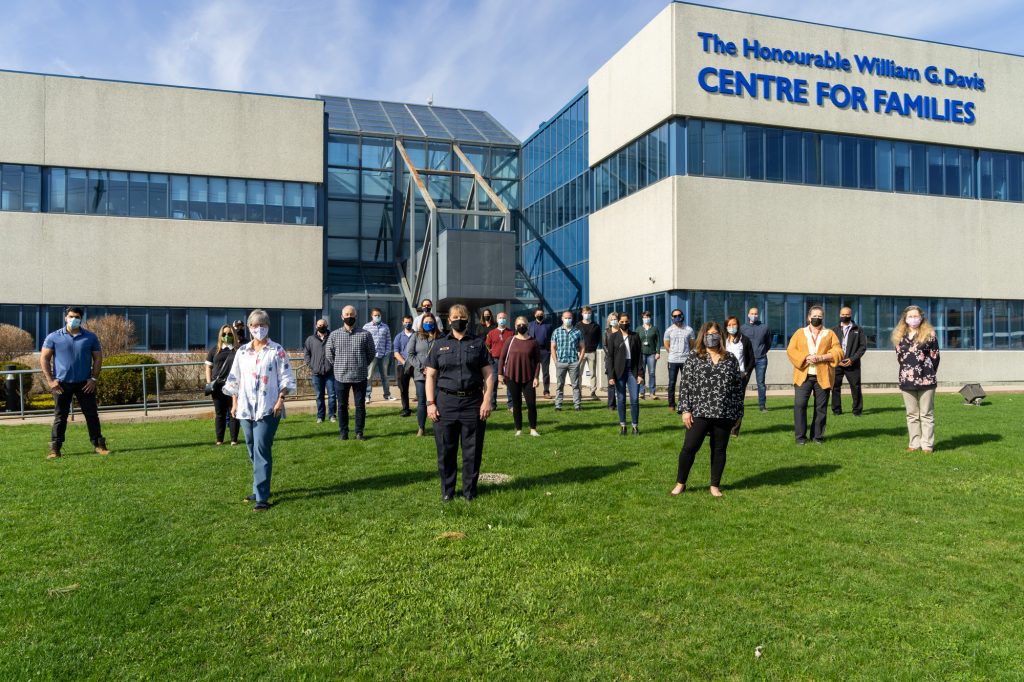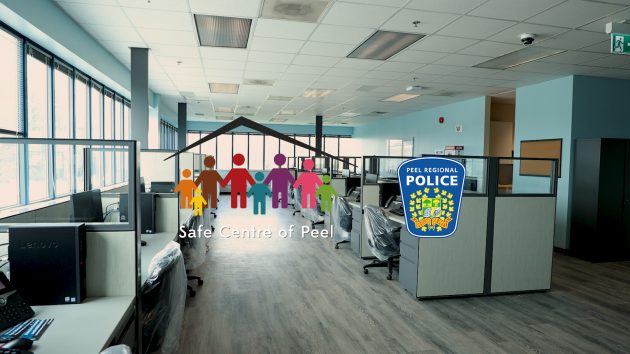
Features
Q&A
Q&A: Peel launches new Intimate Partner Violence Unit
July 25, 2021 By Brieanna Charlebois
 Credit: Peel Regional Police
Credit: Peel Regional PolicePeel Regional Police (PRP) recently launched a new Intimate Partner Violence Unit to address the growing number of domestic violence incidents in the area. The unit is based in the same location as other services and supports available for survivors of family violence. Officers from the unit will be available around the clock to address all calls related to intimate partner and family disputes, which are among the top four call types in the Peel region.
A recent Blue Line, The Podcast featured PRP Deputy Chief Nick Milinovich and Detective Constable Kathy Kulbak, who joined Blue Line editor Brieanna Charlebois for a conversation about the launch of the unit, its success so far and their plans for the future.
Q: What is the unit and how is it different than previous models?
Milinovich: The unit is responsible for cases of intimate partner violence (IPV) for the region of Peel. How it works is our uniform officers will respond. Once they develop or begin to believe there are grounds for a criminal offence, the case is transferred over to the IPV unit and people, like Kathy, will then take over the investigation and case management.
The unit is different because it falls the Family Justice Model and we are one of the largest services nationally that have incorporated the model into our service delivery strategy in the area of IPV. What that means is that investigators and the team aren’t responding from a police division. They are actually co-located and partnering with different advocacy services in the community from a location that is not part of the police station. This really breeds collaboration. The other thing that makes our service model slightly different from what we had is that it’s aligned with our Community Safety and Well-being Plan. This represents a huge investment to our police service from what our community views as a big problem in the area: intimate partner violence. The second piece of our approach are people, like Kathy, who are participating and working to make a positive difference.
Q: Const. Kulbak, how has your personal experience with IPV aided in your police work?
Kulbak: My experience took place about 30 years ago and, as a rookie, when I would respond to domestic calls, people would naturally gravitate toward me. I could relate to them. I felt like I had a bit of an upper hand because I had that life experience. I feel that everything that I’ve gone through as a survivor has aided me as an officer and everything I’ve worked for is for this. It’s nice to bring people somewhere that isn’t a police department because that is overwhelming for survivors. I think the unit is long overdue so I’m glad it’s happening and I think it’s working well.
Q: How were officers for the unit selected?
Milinovich: It is about the interest and the passion in making a difference. It’s about the understanding that the way we conduct this kind of investigation is differently than how we’d conduct other investigations. There are just personal characteristics that would impact the way you conduct police work in IPV cases. I think we’ve been successful in finding those people. It’s one of the busiest places someone can work bar none, so if you’re not committed or don’t understand it, you won’t be able to respond to these calls in a way that is compassionate and trauma-informed. There are 49 officers as of now but the demand is growing.

Credit: Peel Regional Police
Q: How has COVID-19 affected IPV call volumes?
Kulbak: I think the lockdown really wore down on people’s mental health. People tend to take their frustrations out on the person closest to them and the results are what police are seeing. Once things start to open up, I’m hoping we see a decline because it’s been really hard.
Milinovich: Organizationally, if you look at our statistics over the past couple of years, generally after 2019 – so 2020 into this year – there’s almost a levelling off, which concerns me because when you speak to service providers and you hear they’re numbers have increased. So, when we talk about isolation in the home and there’s less opportunity to escape—those things concern me.
Another thing that I often spend a lot of time thinking about is, if we look at 2020, we see that the geo-political landscape has created some issues with trust in police and we promote some of those ideas among certain populations. We have to ask ourselves if this is contributing to less reporting to police. I want to begin planning into what happens six months from now when things start to really open up. It will bring its own set of challenges in the same way the pandemic did, but it’s an opportunity to be more proactive.
This episode of Blue Line Podcast was sponsored by Wilfrid Laurier University. To listen to the full podcast, visit blueline.ca/podcast.
Editor’s Note: This interview has been edited for clarity.
Print this page